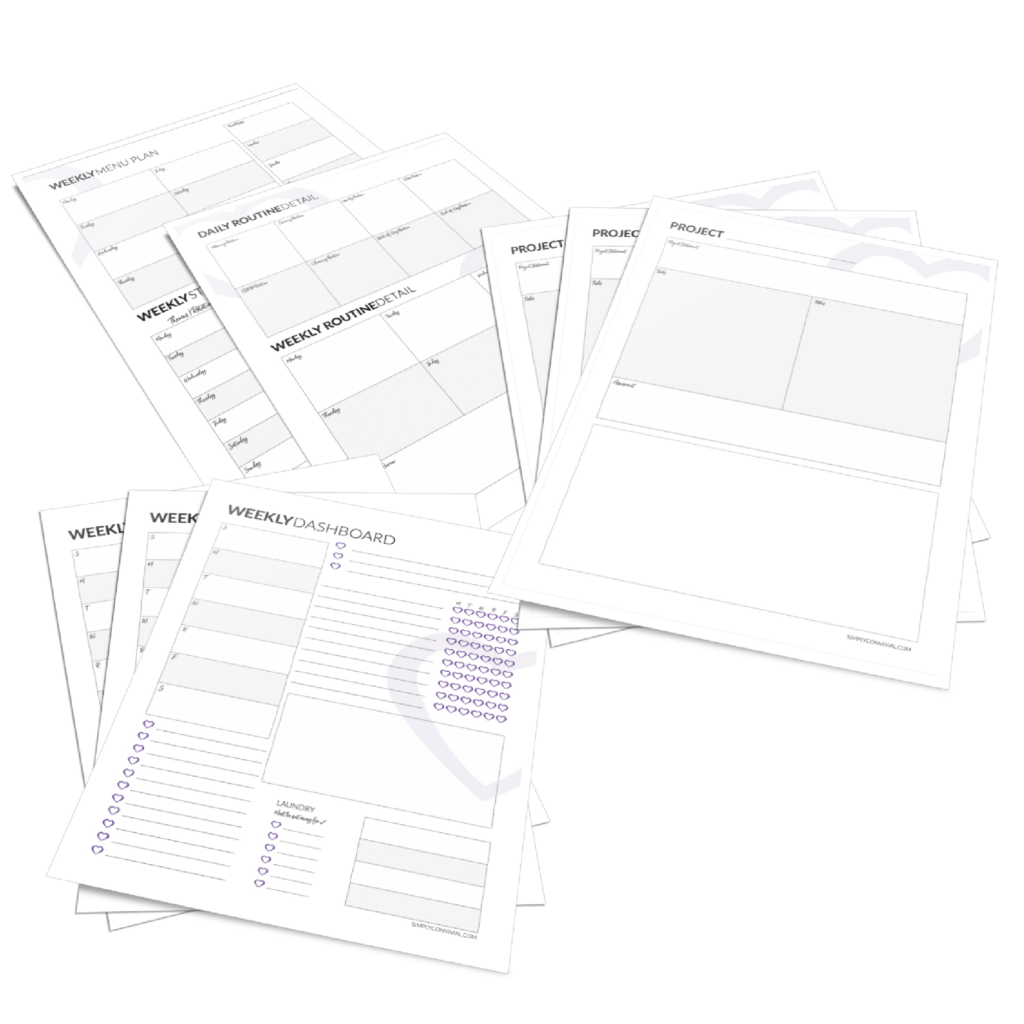It’s a new year and that means time for new goals. It’s irresistible.
And I don’t recommend resisting.
I love new year goals and resolutions, but they can lead to discouragement unnecessarily.
Sometimes we conclude that because we can never reach and maintain our ideal, then it is the ideal bringing us down. We’re tempted to stop trying to clean the house, organize the toys, lose the weight, balance the budget, or train the children because we never reach our desired (usually unrealistic) goal, or if we do, it doesn’t last long. However, the primary problem is our own paradigm, not our goal.
Listen to this post!
There is a ditch on both sides of the road, and it’s easy to careen between the two. On the one hand, it’s much easier to just let life happen and live day by day without planning for the future. We have enough to do without worrying about mission statements and visions and where we want to be in ten years, much less one. If our plans never work out as we want them to, why bother planning?
On the other hand, we see that knowing where we’re going helps us make better decisions, so we plan everything out for the next ten years to the smallest minutia and break ourselves trying to make those plans come true.
Somehow, we have to navigate between drifting and rigidity. We can only do this if we embrace the way God made the world. God made the world for a purpose. He made us for a purpose. So if we live as if we have no purpose, no point we should be working toward, we are not walking in the truth. Yet, God is the One who not only created our purpose (which means it’s not ours to make up), He is also the One who holds the future in His hands; we do not.
One way to balance both intentional actions and flexible openness is to focus on processes rather than strive for an outcome. Instead of setting checkbox goals, look at your responsibilities and decide on one key change you could make in that area that would make a huge difference.
You do not control other people, circumstances, or the future. You do control your responses to people and to disappointments, your actions in a day, and your attitude along the way.
So focus on what you do control, not what you don’t.
This doesn’t mean the results won’t happen, because they probably will, it means you’re allowing the space for them to happen – happen bigger, happen different, happen better, happen longer – who knows? This is working and living with an open hand. This is living and working with faithful trust in a good God.
Focus on habit-building rather than goal-reaching, and your abilities to reach goals will be dramatically increased as a side benefit. The truth is that we quickly run out of discipline and will-power. We can’t sustain it constantly long-term. What we need instead is system and habit.
System means making decisions about how you do things up front so that you don’t have to consider all your options and make a decision every single time. A habit is an action that no longer takes mental energy to perform; it is an action that has reached automaticity.
So, what we need to do as we go along is to slowly establish systems for areas of our life that are draining us, then work at them until the system is a habit. It could be anything from making the bed after a shower to hugging the children as they get their breakfast to always putting bills to be paid into the inbox.
A system does not have to be impersonal and cold and rigid, it is simply “the way we do things here.” You bring the life to them. You can bend and change them. But having them reduces the mental effort required to sustain a busy, active household.
When you feel overwhelmed with all the details of life, see what decisions you can make upfront and then follow-through on them until it is habit. Work on one habit at a time for a sustained period of time, then add another one. Gradual, steady growth will pay off more than bursts that lead to busts.


It took me so long to figure out what you just said in one post. I would always set huge, major goals and be disappointed they didn’t work out for me. So glad I finally figured out to work on one step at a time. Thanks for the reminder.
It took me so long to figure out what you just said in one post. I would always set huge, major goals and be disappointed they didn’t work out for me. So glad I finally figured out to work on one step at a time. Thanks for the reminder.
I think this is one of those life lessons God’s been trying to teach me for the last decade and a half. You put it so beautifully and succinctly! Lol. My temptation is to veer off toward the ditch of giving up. Thank you for the reminder that small choices toward responsibility and habit are more important than grand plans. :)